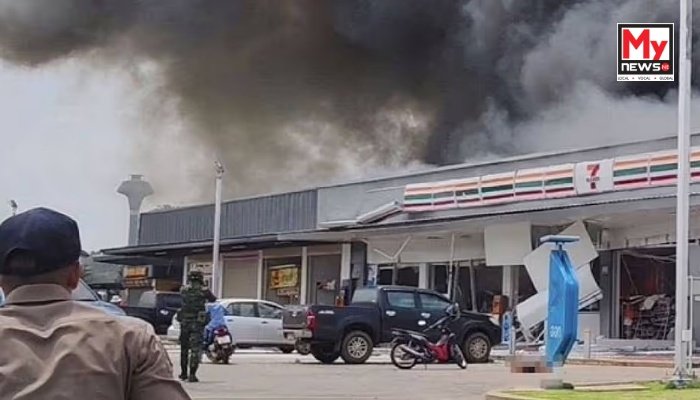Cambodia-Thailand Border Flares Up, UN Security Council Convenes Emergency Session
International: Tensions along the Cambodia-Thailand border have dramatically escalated over the past two days, prompting both nations to seek urgent intervention from the United Nations Security Council (UNSC). The UN has scheduled a closed-door emergency meeting for Saturday to address the volatile situation, which is increasingly threatening regional peace in Southeast Asia.
The fresh wave of hostilities ignited on Thursday, with Phnom Penh and Bangkok exchanging accusations over who initiated the clashes. Thai authorities claim Cambodian surveillance drones were spotted near their military installations, while Cambodia asserts Thai troops violated a bilateral agreement by crossing into their territory and opening fire first.
Cambodian Prime Minister Hun Manet has formally appealed to the UNSC, citing the conflict as a direct threat to global peace and security. The UN has confirmed that both Cambodia and Thailand will be granted the opportunity to present their respective cases under Rule 37, which allows non-Council members to participate in Security Council discussions.
In its official communication to the UN, Cambodia has alleged a series of “unprovoked and deliberate” attacks by Thai forces in disputed border areas, particularly around the historic temples of Tamone Thom, Ta Krabey, and Mom Bei in Preah Vihear and Oddar Meanchey provinces. Cambodia has also outright rejected Thailand’s claims of newly laid landmines, stating that Thai troops strayed from agreed patrol paths into existing minefields on Cambodian soil.
Conversely, the Thai government has submitted its own detailed dossier to the UNSC, vehemently denying Cambodia’s accusations. Thai officials maintain that the confrontation began when Cambodian forces fired upon a Thai military post in Surin Province on July 24. Furthermore, Thailand has accused Cambodia of targeting military assets in at least four provinces: Buriram, Surin, Si Sa Ket, and Ubon Ratchathani.
Thailand has also dismissed Cambodia’s allegations of F-16 fighter jet strikes on civilian areas as “baseless and distorted.” Officials confirmed that five Thai soldiers were injured in landmine blasts on July 16 and 23, with one soldier losing a leg, asserting that these were caused by recently planted explosives and not residual mines from past conflicts.
A fleeting glimmer of hope appeared when both sides reportedly agreed to a ceasefire proposal put forth by Malaysian Prime Minister Anwar Ibrahim, the current chair of the ASEAN bloc. However, Cambodian leadership quickly claimed Thailand reneged on the agreement within an hour of accepting it. Bangkok, on the other hand, insists it remains committed to ASEAN-led mediation, but firmly states that Cambodia must take concrete steps towards de-escalation first.
The conflict has unfortunately resulted in significant civilian displacement. Thailand’s Ministry of Public Health has reported that over 130,000 people have been evacuated from border communities due to ongoing shelling and heightened tensions. Several key border crossings have been shut down, and both nations have recalled their ambassadors, signaling a deepening of the diplomatic crisis.
The renewed military confrontations have drawn widespread international concern. The United States, China, and Japan have all urged both countries to exercise maximum restraint and return to the negotiating table. France has issued a strong appeal for an immediate cessation of hostilities and a resolution through dialogue and adherence to international law.
The border between Cambodia and Thailand, stretching over 800 kilometres, has historically been a flashpoint, marked by frequent disputes, particularly over ancient temple sites such as Preah Vihear and Prasat Ta Muen Thom, nestled along the Dangrek mountain range.
Read More: Assam: Cultural Extravaganza Concludes, Nurturing Young Talent in Barpeta

